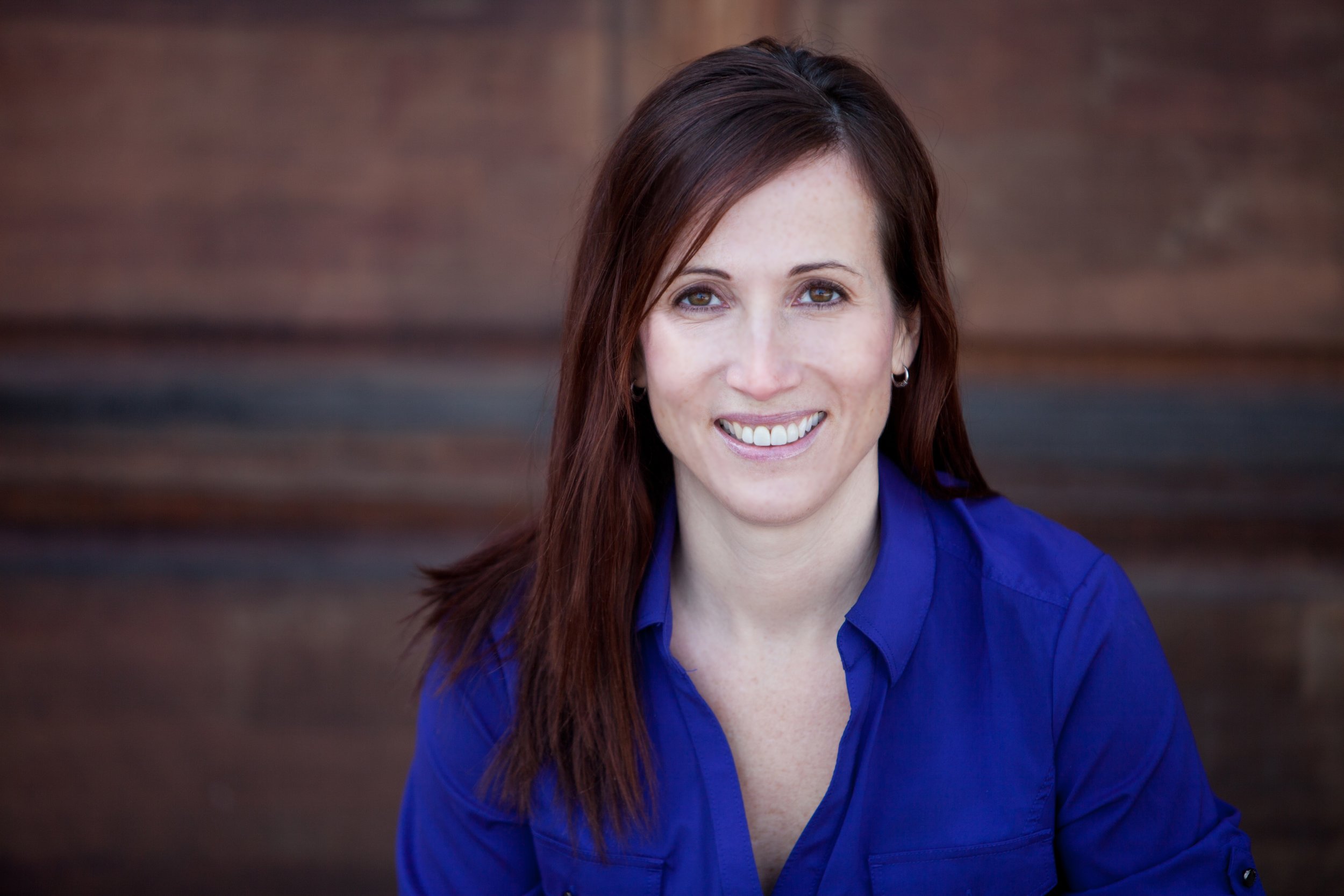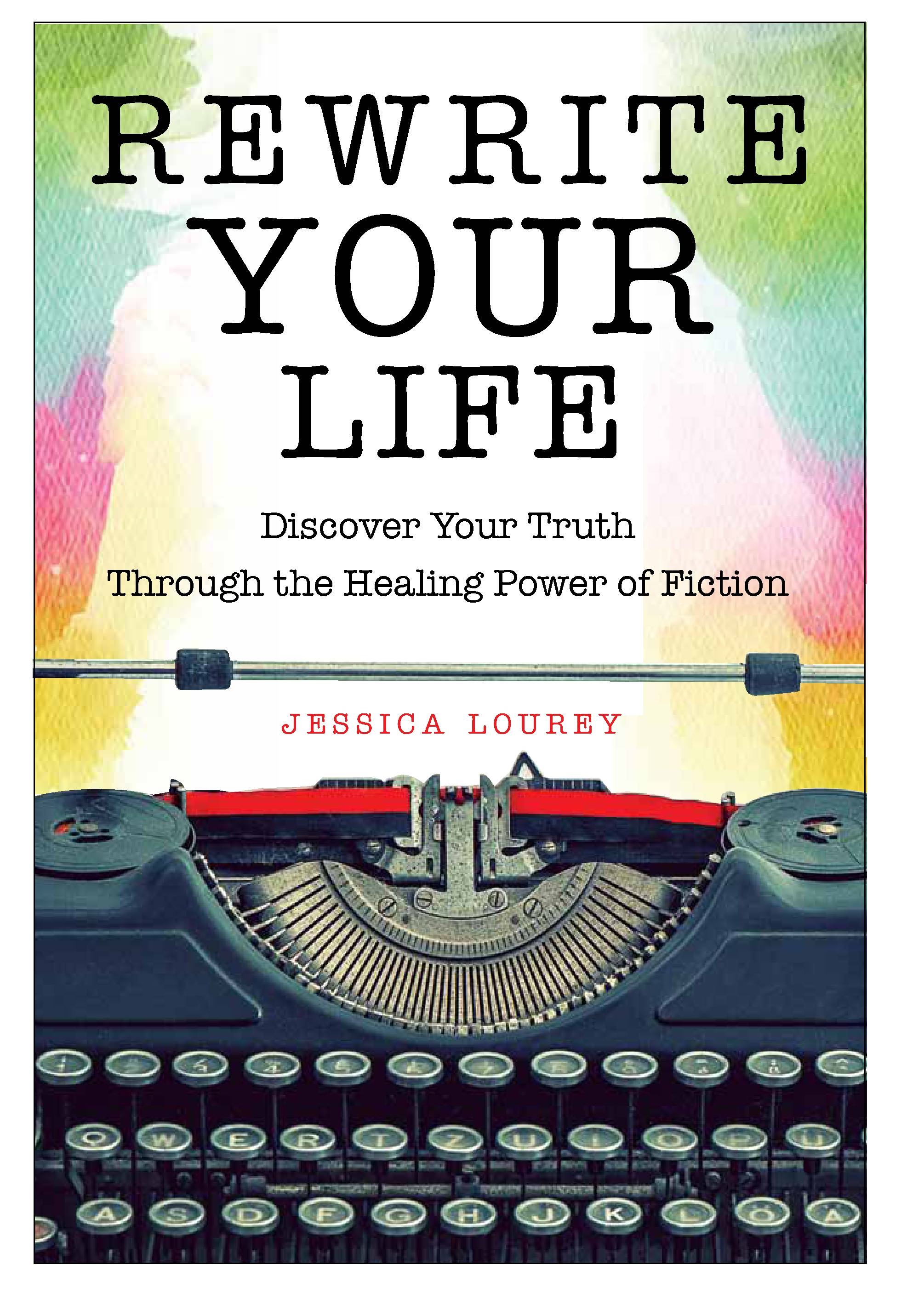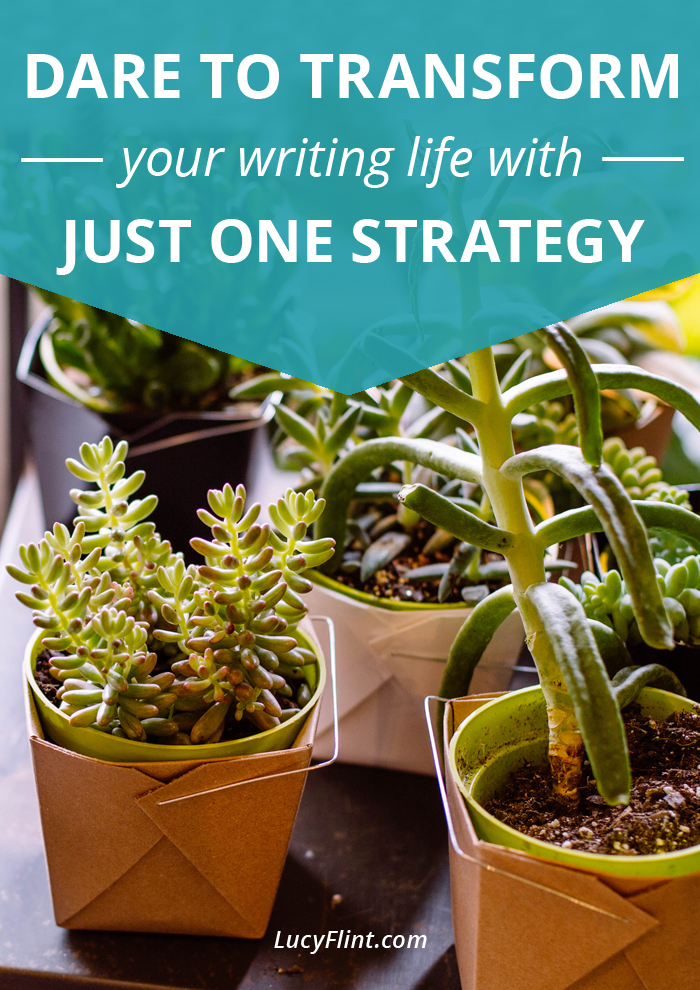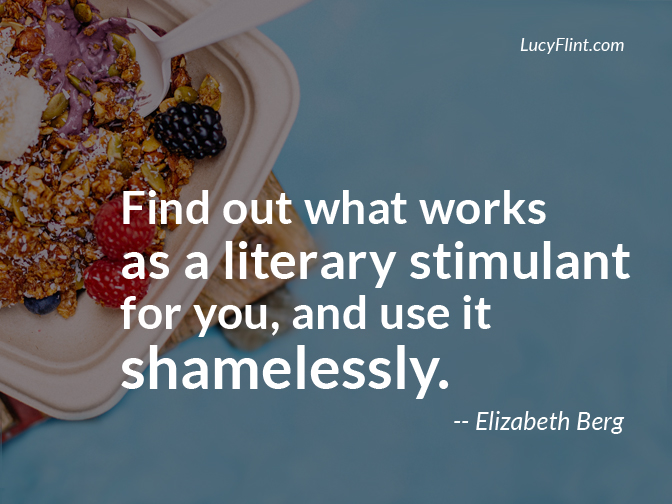So last time, we talked about four ways to build a groove in our writing lives. Ways to make our writing flow more readily, more easily. Without, you know, spraining our ankles or exhausting ourselves.
We talked about creating the best environment for our work, about flooding our creativity with quality nutrition, about learning craft from a master, and about committing to the hard work required to really find our pace.
When these traits add up, they really can make writing-life magic. More words, richer ideas, more ease. I mean ... who doesn't want that, right? (So if you missed the last post, check it out.)
Okay. If you're ready for a few more ways you can support yourself into a writing life upgrade, read on!
The next four traits build on the previous four. These can seem like the lighter set of tools, all fluffy and unimportant. And none of them are going to be completely and crazily new to you, if you've hung out here for a while.
But don't be fooled. Because when we take all four together ... well.
It's like your fairy godmother just showed up.
She might seem like any other lady at first, but then she starts turning pumpkins into high-class transportation. Suddenly you're going somewhere.
Never underestimate the power of your fairy godmother, my friend. She makes all the difference.
Ready for your transformation? Here we go:
1: Set yourself up.
Here's the truth about the writing life: It can be very hard. The craft is far bigger than we can ever learn. And we're working for a significant amount of time without a reward.
Which means that: There are going to be minutes, hours, days, and whole months, where our instinct for self-preservation is going to be dead set against our doing any of this.
Why put yourself through it?! It's easy to give up, it's easy to stop early, and it's easy to just not start at all.
This is why I'm a big fan of the power of routines, the steadying effect of habits, and the beauty of rituals.
They are how I've made sense of this work, how I define what I'm doing. They're the invisible net that holds this whole writing life of mine together.
I have a general routine, and I have a few dozen habits, just like anyone else.
But what I've been especially focused on lately are rituals.
Neat little collections of habits, all grouped together in a pack, each habit addressing something very specific and particular, the answer to a set of questions I used to ask myself.
How do I get my mind ready for my creative work? How do I make sure my physical energy stays up? How do I keep track of general ideas that don't fit this particular project? How do I not lose old insights? How do I steady my courage for the day? How do I not give up before I've even started?
I answered those questions in the form of rituals.
There's the first ritual of the day, writing my three morning pages (à la Julia Cameron), longhand, by the light of a lamp, sitting up in bed. The whole house is quiet, but my mind is awake, and I scribble down all the mundane thoughts and emotions and worries that I woke up with.
A bit later, when I sit down at my writing desk, there's a set of habits that form the ritual that starts my writing session:
I bring a cup of coffee to my desk. Because coffee. No one needs a reason for coffee, right?
And then I take out an old journal and I read a few pages in it. Reading these old pages is so valuable: they remind me of how I've solved past problems, or I come across old insights I'd forgotten. And sometimes, these pages make me laugh because of how obsessed I was about something that turned out to not matter at all. (Who, me??) Rereading old journals gives me perspective, and it's also a great transition into my writing work.
I'll write down any new thoughts or ideas that strike me, using the format for the idea journal that Todd Henry talks about in The Accidental Creative. (Basically a plain journal that I index as I go: I fill pages with ideas that spring up during the day—after listening to a podcast, watching a movie, walking the dog, washing the dishes. Whatever, whenever: it goes in here. At the front, I summarize each idea with a single line and a page number for reference. SUPER handy.)
Then I review the index of ideas that I've been compiling in the front of that idea journal, and if anything snags my interest, I'll go back and reread the entry for that particular idea. This is a great way to stir up my mind, and to keep quality ideas from slipping away.
After that, I read two pages in A Year of Writing Dangerously, because I just love what that book does for me—it is so encouraging. And it connects me in spirit to a huge collection of people who spend time among words. I feel my bravery rising.
And finally, I'll sit with a list of true beliefs I've developed, and I practice actually believing them. (If this sounds totally weird and waaaay too touchy-feely for you, I really understand. But you gotta check out this post. Skip down to point number two. And see what you think after reading.)
At this point, my mind is all stirred and awake. I feel grounded and cared for and ready, and as brave as I can be.
And so I dive in.
That's it! That's my pre-work set of rituals.
Spelled out, they might sound completely mundane and boring. But as I enter into them, I feel a little whiff of excitement—as if I've just flicked the first domino in a long snaking line-up, and now I get the joy of watching them zip along on their own.
If I skip this set of habits, this pre-work ritual, I can still do my writing work, but I feel a bit off, a bit blindsided.
I get more easily distracted, sideswept by doubts. It's easier to slide off track and indulge the "but I don't feel like it" whine. I'm less focused. Susceptible to interruption.
That's why I love calling these habits a ritual, why I love dignifying them like that. Because they're so important, vital to the success of each work session.
So what about you? What are your rituals? Your routines?
What do you need to set yourself up well? What are the provisions—mental, physical, spiritual, emotional—that you need for the next little stage of your writing journey?
What would be an incredible gift to yourself, at the start of your work session?
Do you have any nagging questions or concerns about how you work, anything that's been thrumming in your mind lately, that could be addressed by some small, simple behavior?
String those behaviors in a row, teach each to feed into each, and you'll have your own pre-work ritual.
You'll have created your own gravity, a set of behaviors and rhythms that pull you to your work, keep you from floating away.
Twyla Tharp in The Creative Habit points to rituals as tools of commitment and preparation. I love that.
So what tools of commitment and preparation do you need in your arsenal?
(If you're loving this topic and would like a little more, check out this post for an all-purpose, all-weather writing routine, and this one for a bit more on the rituals that protect our work.)
2: Go for steady.
So much of what I do in my writing work is shaped by the goals I have. Oh, goals. We've had such a roller coaster relationship.
This is why I love everything to do with goals:
They give me a rush.
They make a gorgeous future seem more possible.
They make what's important to me very clear.
They let me feel like I've organized my life very, very well. Gold star for me. (And I love gold stars.)
They give me something spectacular to aim for. Which makes them the most essential tool in an overachiever's toolkit, right? And I like that toolkit. It's neat.
And here is why I really don't love goals at all:
My life is incredibly unpredictable. And when my health goes belly-up, or when family needs me, I have less energy to give my ultra-ambitious writing goals.
I sometimes accidentally look at things from a pass/fail perspective. And I tend to find myself "failing" when I do that.
Oh, and this happens about 90% of the time: On my way to hitting the goal, I discover something much more important that needs my attention. When I switch tracks, I feel foolish, uncertain, and inconsistent.
I brag about goals, tell everyone about them, and then abandon them.
Goals can sweep me up in a dizzying skyward surge of energy, but then one thing and another and another conspire to tug at our wings, and the goal and I plummet back to earth.
Those landings are a real blast.
This is why, last spring, I began revising my view of goals. The more I saw them as just a tool, the better I felt. Tools are meant to serve, not destroy.
I'm always going to be a sucker for that neat clean feeling of a few well-chosen goals, but I also want the freedom to replace them, revise them, and refresh them as I go.
What's a romantic goal-setter to do? Especially when I fall for every goal-making chance I find: I make new goals after reading a fantastically helpful book, I make them at the start of summer, at my birthday, during back-to-school season, and always always at the new year...
So is there hope? Yes, of course. That hope comes from the wonderful relationship between a good goal and a strong system.
A goal is the thing that helps you know where you're aiming. It's invaluable. I am probably never going to stop picking up goals and bringing them home and feeding them and smiling at them.
But their highest and best use (for me, at least!) is this: I need to use those goals to engineer a strong system.
The goal is where you aim; the system is what you put into practice in order to get there. The goal is the beautiful height you want to reach; the system is the practical smart staircase that you wheel underneath the height.
Goals might sound pass/fail, but systems aren't. Systems are quiet, non-flashy things. They are the program that runs everything, as it turns out.
When you pair really lovely habits and rituals and routines, with a deep, sensible program for how you'd like your work to move forward—what kinds of people you want to learn from, the books you want to study, how you want to practice, how much you want to create—that is what makes up your system.
So if you have a bit of a goal-hangover, if your resolutions are all forgotten, overruled, or dead: embrace the power of systems. Systems are your friend.
(If you want more: This quick read is a superb article from James Clear, which explains the difference between goals & systems beautifully. Systems win. So inspiring!)
3: Head toward the heat.
When I had to do a research paper in school (for high school or college or whatever), I usually fell into this terrible habit.
I was so focused on the deadline, and the amount of work looming between me and that due date, that I wouldn't spend much time looking for a topic. I'd grab the first possible thing that came to me, and off I'd go.
Do the research, do more research, write the paper, barrel through a few drafts, hit all the milestones, and turn it in.
I usually didn't much love what I was writing about. I didn't feel any conviction or excitement about it. But hey, school is school. No excitement doesn't exactly raise red flags.
Here's the problem: I brought that old writing process right into my post-school writing life.
Bad Thing #2: I didn't even realize it. I didn't even notice.
I'm embarrassed to say it, but there was a whole lot about my first novel idea that I didn't even like much.
I kept wedging certain topics and ideas and plotlines into it because I thought I should. And not because they thrilled me, delighted me, kept me from sleeping.
Here's a tip: Writing about stuff that doesn't move you will probably never launch you into a writing groove.
Yeah. I think I can say that confidently: NEVER.
So give yourself and your writing life a little check-up: Are you ridiculously in love with what you're writing about?
Have you given yourself permission to even find out what you love?
It was a long time before I finally did that. Before I finally took the time to admit to myself that I adore middle grade adventures and always will. Before I admitted that my favorite characters are more than a little weird, that I love worlds that aren't true high fantasy but are instead a funny mashup of reality and the bizarre.
That's what I'm writing now, and I'm seriously delighted by it.
But here's a hint: I couldn't figure out what I love by moving quickly. Speed and rushing around basically hijack self-awareness for me.
If you suspect that you don't truly love what you're writing about, that it isn't coming from the deepest and best place in you, then maybe take a moment to explore that.
Give yourself permission, space, time, and silence: Listen to yourself. And discover what nudges your curiosity. What moves you toward wonder.
What you love.
What lights up your writerly heart? What gets your enthusiasm flowing?
Work from that place, where it's warm and everything is glowing. Work from your curiosity; work from your natural excitement. This can sound so simple, but it's oh-so important (and shockingly easy to side-step!).
And it's really the best writing fuel there is. Trust me.
(If you'd like a bit more on this topic, check out this post on embracing your quirks, on seeking more wonder, and on how not to learn to write a novel.)
4: Respect your source.
Sometimes, when we really, really, REEEALLY want to see results in our work, we abuse our creativity and our energy.
We sideline vital things like sleep requirements and monitoring our energy. The way we talk to ourselves changes, gets a bit more sharp, more urgent.
It's all in pursuit of a greater purpose. So that can feel noble. Self-sacrificing.
Only problem is, when you're an artist, a writer, and you decide to be self-sacrificing, it means you're burning up the very thing you're working from.
When we burn up our energy, when we get exhausted, when we mentally beat ourselves up, it's the same as setting our work space on fire, torching our computers and our online accounts. As erasing the alphabet from memory.
Working too late, too long, too hard, without breaks, without replenishing yourself... it's not a good recipe, my friend.
That's destructive. And what we're trying to be is creative.
If we're working to build something with our brains, we can't, at the same time, tear apart our ability to use our brains.
So do a bit of a general check-up: How has your energy been lately? Have you been taking superb care of yourself, or maybe, um, not?
Have you been overworking yourself, feeling like you can't ever take a break, can't ease up? If so, check out Twyla Tharp's fantastic recommendation:
If you've been following a don't-stop-till-you-drop routine--that is, you only quit when you're totally wiped out--rethink that. This is how ruts form. As an exercise, for the next week or so, end your working day when you still have something in reserve.
Now ask yourself, exactly what is it that you're putting into reserve. Is it raw energy? Is it desire? Is it a few more ideas left unexplored? Is it something you meant to say to someone but didn't? Whatever it is, describe it in writing on a notepad or index card. Put the note away and don't think about it for the rest of the day. Start the next day by looking at your note.
She's a master choreographer, creating scores of dances over dozens of years. This woman knows what she's talking about. It's probably a real good idea to listen to her. ;)
It's tempting to wear ourselves out. But that's only a short-term solution: it kills us over the long-term.
How sustainable is your writing habit? Do you binge then burn out? Do you beat yourself up mentally?
Oh, my friend. Let's come back to a kinder, gentler, more long-term way to work.
(If you want more on this, I've got more!! Check out these posts: for a comprehensive energy check-up, for a thorough sustainability check, a plea to get rid of brain fog, the best support for creativity that I've found ever, the best escape for a weary writer, and how to change that killing voice in our heads.)



















